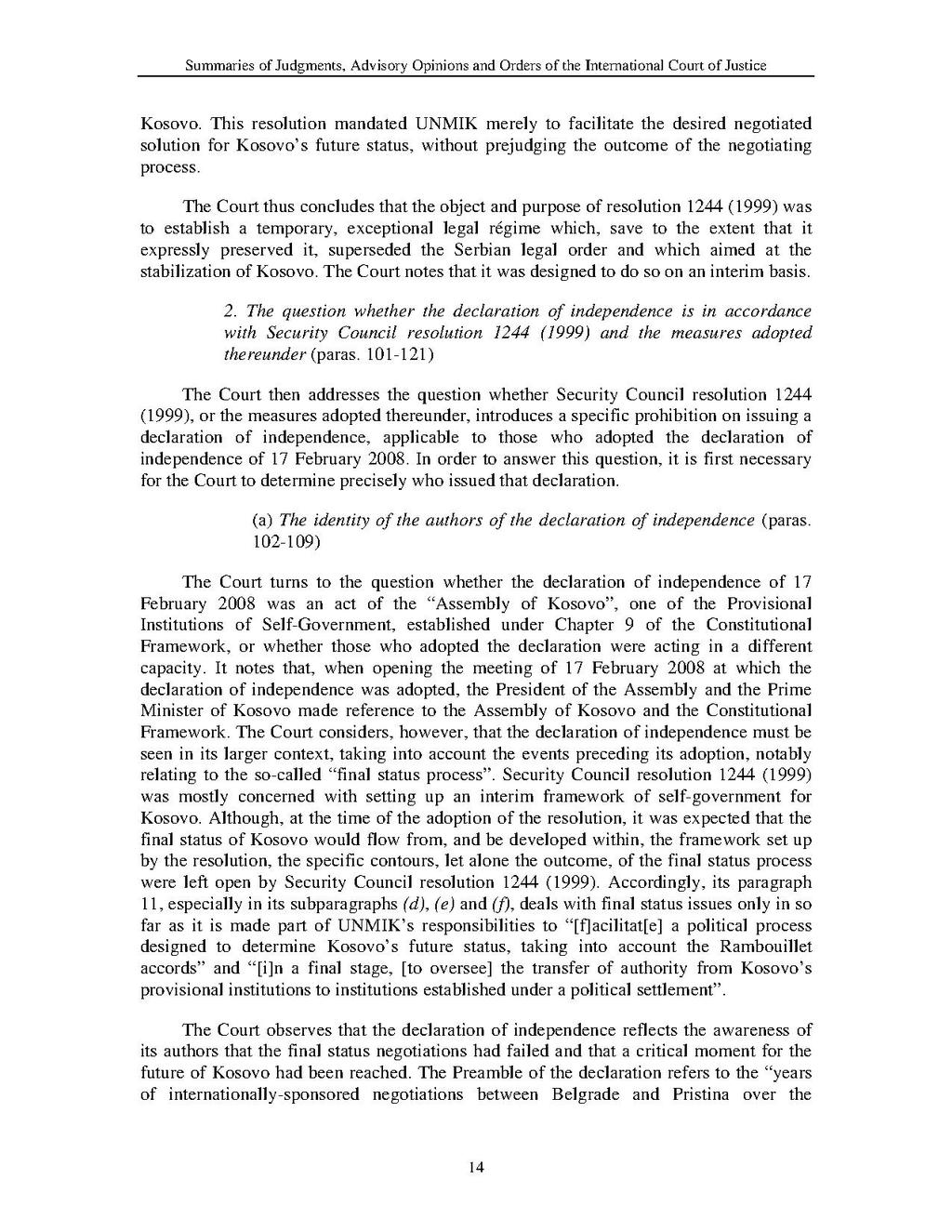Summaries of Judgments, Advisory Opinions and Orders of the International Court of Justice
Kosovo. This resolution mandated UNMIK merely to facilitate the desired negotiated solution for Kosovo's future status, without prejudging the outcome of the negotiating process.
The Court thus concludes that the object and purpose of resolution 1244 (1999) was to establish a temporary, exceptional legal régime which, save to the extent that it expressly preserved it, superseded the Serbian legal order and which aimed at the stabilization of Kosovo. The Court notes that it was designed to do so on an interim basis.
The Court then addresses the question whether Security Council resolution 1244 (1999), or the measures adopted thereunder, introduces a specific prohibition on issuing a declaration of independence, applicable to those who adopted the declaration of independence of 17 February 2008. In order to answer this question, it is first necessary for the Court to determine precisely who issued that declaration.
The Court turns to the question whether the declaration of independence of 17 February 2008 was an act of the "Assembly of Kosovo", one of the Provisional Institutions of Self-Government, established under Chapter 9 of the Constitutional Framework, or whether those who adopted the declaration were acting in a different capacity. It notes that, when opening the meeting of 17 February 2008 at which the declaration of independence was adopted, the President of the Assembly and the Prime Minister of Kosovo made reference to the Assembly of Kosovo and the Constitutional Framework. The Court considers, however, that the declaration of independence must be seen in its larger context, taking into account the events preceding its adoption, notably relating to the so-called "final status process". Security Council resolution 1244 (1999) was mostly concerned with setting up an interim framework of self-government for Kosovo. Although, at the time of the adoption of the resolution, it was expected that the final status of Kosovo would flow from, and be developed within, the framework set up by the resolution, the specific contours, let alone the outcome, of the final status process were left open by Security Council resolution 1244 (1999). Accordingly, its paragraph 11, especially in its subparagraphs (d), (e) and (f), deals with final status issues only in so far as it is made part of UNMIK's responsibilities to "[f]acilitat[e] a political process designed to determine Kosovo's future status, taking into account the Rambouillet accords" and "[i]n a final stage, [to oversee] the transfer of authority from Kosovo's provisional institutions to institutions established under a political settlement".
The Court observes that the declaration of independence reflects the awareness of its authors that the final status negotiations had failed and that a critical moment for the future of Kosovo had been reached. The Preamble of the declaration refers to the "years of internationally-sponsored negotiations between Belgrade and Pristina over the
14
